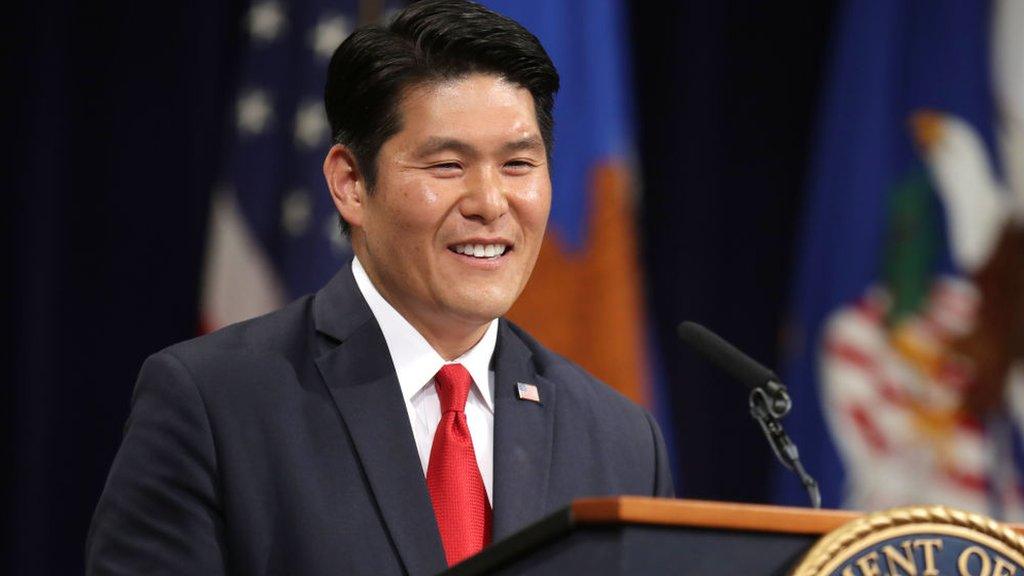Robert Hur defends focus on Biden memory in explosive classified files report
- Published
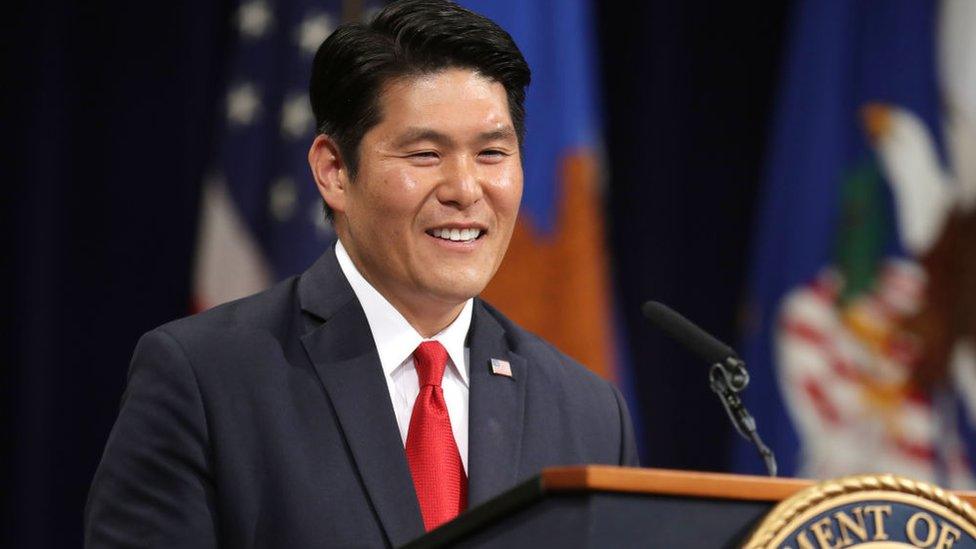
Special counsel Robert Hur will defend his explosive report into Joe Biden's handling of classified files under questioning from Congress.
He will tell lawmakers that his assessment of the president's memory as poor, remarks that sparked uproar last month, was "accurate and fair".
The report found Mr Biden "wilfully" retained troves of files but Mr Hur declined to charge him with a crime.
The president's age has become a key issue as he runs for a second term.
Last month, Mr Hur's report was published into how classified documents from Mr Biden's time as vice-president ended up in an office in Washington and in a garage next to his sports car in his home in Delaware.
Explaining why he declined to bring charges, Mr Hur said in his report that a jury would view him as a "well meaning, elderly man" with a "poor memory".
The comments enraged the White House and reinforced some voters' concerns over Mr Biden's age.
In prepared opening remarks shared hours before he appears before the House Judiciary Committee at Capitol Hill, Mr Hur defended his decision to detail issues with the president's memory, arguing it was relevant to his decision not to bring charges.
"My assessment in the report about the relevance of the president's memory was necessary and accurate and fair," Mr Hur plans to say. "Most importantly, what I wrote is what I believe the evidence shows, and what I expect jurors would perceive and believe."
He plans to add that he did not "disparage the president", but was required to explain his logic to the US attorney general. "These are the types of issues prosecutors analyse every day," he will say.
Mr Hur alleged in his February report that the president struggled to recall major events from his time serving as vice-president, and could not remember when exactly his term in office had begun or when his son Beau died of cancer.
The transcript of the report - released just ahead of Mr Hur's testimony - shows Mr Biden did in fact remember the month and date Beau died, but struggled to remember the year.
"What month did Beau die? Oh God - May 30th," Mr Biden asked during the interview.
A White House lawyer responded with "2015" and the president responded: "Was it 2015 he had died?"
The transcript painted a mixed picture of the president's two-day interview with the special counsel, during which Mr Biden frequently joked with the prosecutor and appeared to have good recall for large parts of the conversation.
But it also notes there was a great deal that Biden does not recall, including details about who packed boxes with his documents and how and when they were transported.
Mr Biden occasionally appeared to be reaching for words including the term "fax machine".
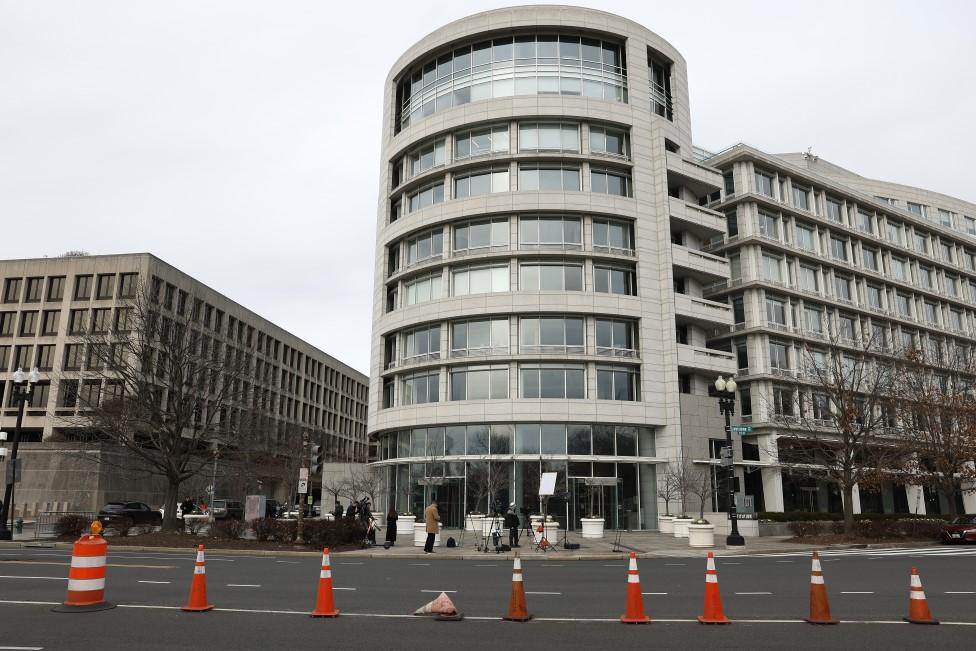
Office building in Washington where classified files were improperly stored
After Mr Hur's report last month, the president was quick to refute its claim that he was suffering from memory issues.
"I'm well-meaning, and I'm an elderly man, and I know what the hell I'm doing," he told reporters.
He responded angrily to Mr Hur's comments about forgetting the day his son died, saying "How in the hell dare he raise that?"
The transcript released on Tuesday suggests the president was not asked directly when his son died.
The Republican Party has been stoking claims for months that the 81-year-old is not mentally fit to serve a second term in the White House, with polling suggesting that a significant proportion of voters are also worried about Mr Biden's mental acuity.
Republicans have also criticised Mr Hur's refusal to charge Mr Biden, comparing it with seven charges filed against former President Donald Trump in June. A trial is potentially scheduled for this summer.
Mr Hur argued there were "several distinctions" between the former president and Mr Biden's handling of classified documents, arguing the allegations against Mr Trump "present serious aggravating facts".
Mr Trump was given multiple chances to return classified documents but did the opposite, he wrote.
"According to the indictment, he not only refused to return the documents for many months, but he also obstructed justice by enlisting others to destroy evidence and then to lie about it."

More on the US election
Explained: A simple guide to the US 2024 election
Analysis: Where Biden v Trump will be won and lost
Policies: What a Trump second term would look like
Recap: The Trump life story to date

Related topics
- Published9 February 2024
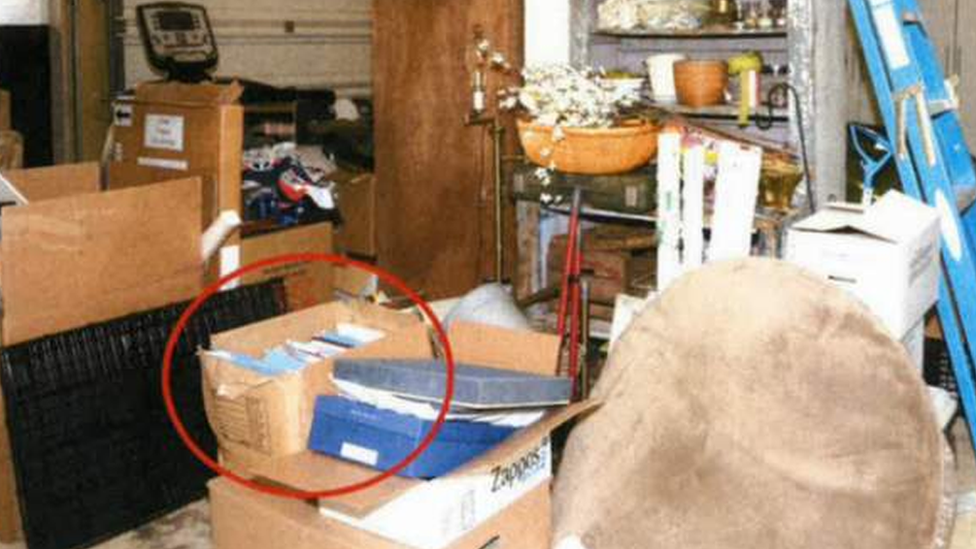
- Published9 February 2024
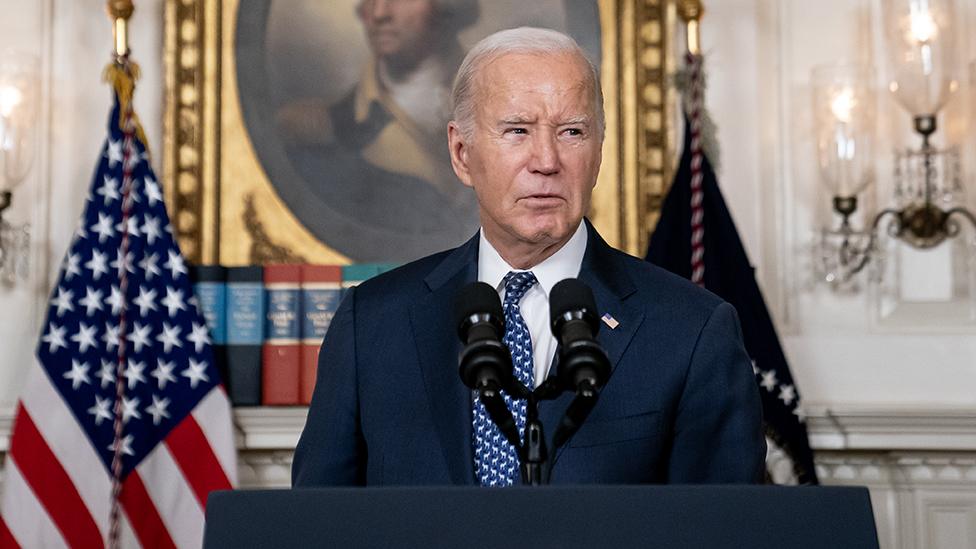
- Published8 February 2024
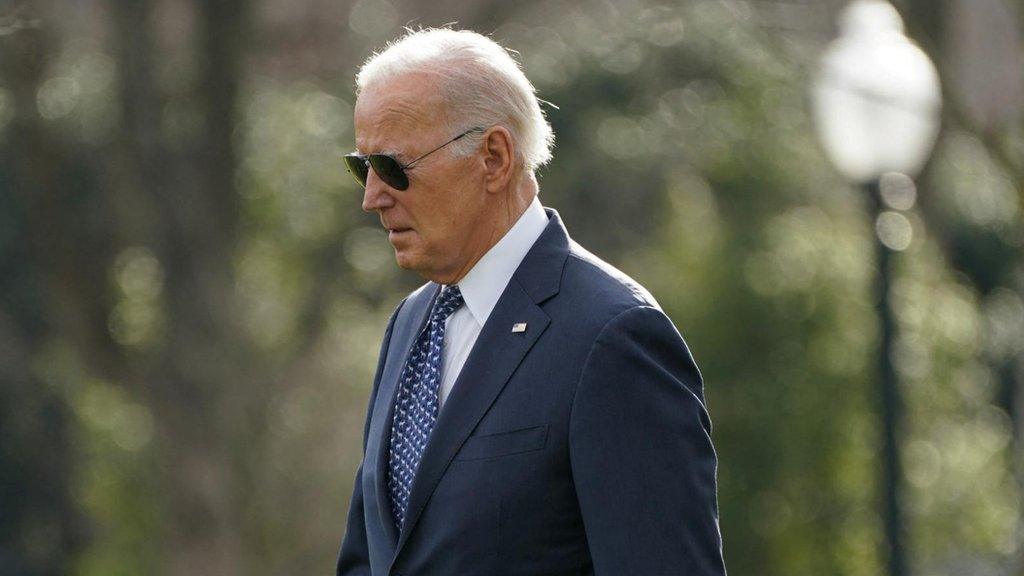
- Published16 February 2024
